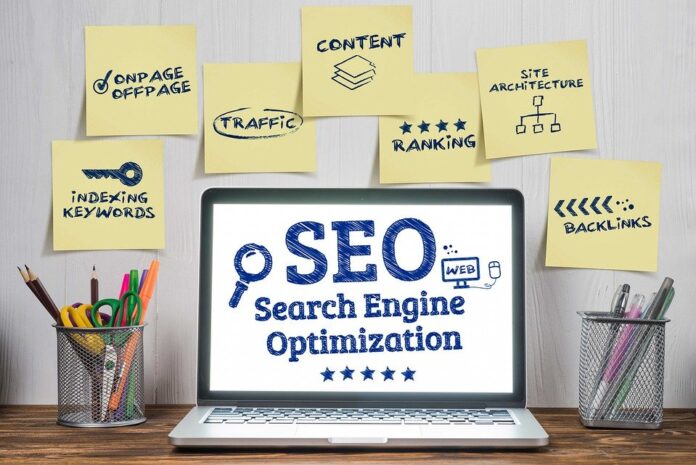This is a good time to list my personal thoughts on the right and wrong way to approach search conferences, with our SMX East search engine marketing conference starting tomorrow in New York. The right way to approach these conferences is to connect personally with representatives from Google, as well as Yahoo and Bing, for advice and assistance with SEO issues.
I suggest the following tips for interacting with search engine representatives at conferences, based on my 10 years of experience programming such shows. I hope these tips will be helpful, and that they might even inspire search engine representatives like Google’s Matt Cutts to create their own tips.
To catch a representative from a search engine, look at the agenda to find which sessions they are speaking at. Remember that not everyone from Google deals with SEO issues, so don’t expect the Google speaker at a panel on paid search to be able to address your SEO issues. Find a session that is specifically about SEO.
Shows similar to this one have sessions that focus on SEO issues. You can check what topics will be covered by looking at the show’s agenda or reading the descriptions of the sessions. If sessions involve representatives from the major search engines, the show is likely to be about SEO.
Often search panels will have a period where anyone can ask questions. If you have an issue with SEO, this is an opportunity to get your question in front of a representative from the organization. It is okay to talk about your specific issue. For example, if you believe you have been penalized, ask how you or others can request a review. However, you should also try to make your problem relevant for everyone.
If you want to get more information and you haven’t gotten a satisfactory answer, ask a short follow-up question for clarity. However, if you continue to ask more questions without letting go of the issue, you will lose the sympathy of the representative and the friends you have in the audience. If you’re still not happy with the situation, tell the representative that you would like to know more but that you will follow up offline. This will give the representative a look of relief. Be sure to have your business card ready.
The representatives typically stick around to answer some additional questions after the session ends. This is a prime opportunity to talk to them. Sit up front, so that you can immediately get to the stage ahead of the inevitable rush. Usually, speakers will remain in their seats at the speaking table. Just line up right in front. Don’t go onto the stage or you will be that person that no one likes. If you weren’t at the front, eventually the reps will have to leave the stage. Let them. Often they’ll move out of the room, so that another session can begin, but they may linger in the hallway. That’s a sign they’re still willing to take questions. But if they start to move and give subtle hints like “I’d love to stay more, but I have to go,” hand them your card (more prep on that in a minute) and let them go.
It is important to be clear and concise when speaking to a representative in order to avoid taking up too much of their time. Keep in mind that you are not the only person they are speaking to and be respectful of their time.
Do not try to get the search engine representative’s contact information when they are helping you with a problem. The reason for this is that they may get too many requests for help in the future and will not be able to help everyone. If you are given a search engine representative’s contact information, do not give it to anyone else without permission.
If you’re pretty sure you have a penalty and know why, like for buying links or having spamming content, clean things up before asking for help. And admitting to everything you’ve done. Having a rep hear your “I did nothing wrong” story and then finding evidence you were knowingly violating guidelines will lose potential support.
It’s okay to approach reps at parties and networking events, but be respectful of their time and don’t talk about work-related topics. Ask if they have a moment and let them know you’ll be brief. It’s important to remember that the reps are human too and they need a break after answering a lot of questions during the day. Be prepared with a business card and try to socialize about something other than work. Having a nice conversation will help build a foundation for future talks about work-related topics.
It is important not to monopolize a search representative’s time for several reasons. First, there are many other people who also want to speak with them. Secondly, monopolizing their time can actually have negative effects on the relationship between you and the representative. Good relationships with representatives are formed when SEOs take the time to get to know them and form friendships, rather than trying to force a relationship.
Don’t show up to your meeting with a search rep with a complicated diagram of your vision–it shows that you are overthinking your SEO efforts. This will make the search rep want to avoid you, and it’s not worth it. Spend your time wisely by finding a good SEO to consult with instead.
SEO Interview Questions for Analysts
As you interview for positions that are more advanced within the SEO field, you can expect questions to be more difficult. The questions below are meant to challenge you on the topic of SEO, so review them thoroughly.
1. What training do you have as an SEO analyst or specialist?
How would you describe your experience with SEO? Do you have any advanced training in this area?
2. What kind of analytics do you perform and what do you look for?
You may be asked several questions about SEO during your interview for this job. Be prepared to talk about the analytics tools you use, what metrics you examine, and how you use that information to evaluate results and plan changes.
3. Which SEO analytics don’t get enough attention, in your opinion?
As far as the question goes, you’ll answer this based on your own experience. Many people might not know how to use certain features in Google Analytics, get caught up in small details, or forget to connect their analytics to their SEO strategy. Answer the question to the best of your abilities, but be prepared to answer it fully.
4. What is keyword stemming and why does it matter?
If the word ‘interview’ is your stem, variations of the word could be ‘interviewing’, ‘interviewer’, and ‘interviews’. Using keyword stemming helps you to use more relevant keywords on a webpage, without keyword stuffing, or ending up with content that reads poorly.
5. What is the most important thing to look for when doing keyword research?
subject matter This is a subjective question! People new to SEO tend to focus on popular keywords without considering the competitiveness of that keyword, so that’s something you could mention. Search volume and relevancy are other factors you might discuss.
6. What is a canonical issue?
The most common type of canonical issue is when a webpage has multiple URLs that contain the same or similar information. This is often caused by a lack of redirects, but can also be caused by ecommerce search criteria or distributing content on multiple sites. For example, http://www.exampleURL.com and http://exampleURL.com.
7. How have you dealt with link penalties?
We indicators that can suggest if your interviewer has been hit by a link penalty from Google. If they have, it’s important to be clear about the steps you’ve taken to find and fix bad links, or to disavow the ones you can’t fix.
8. Which Webmaster tool do you use and why?
Google Webmaster Tools is a set of search engine optimization (SEO) tools provided by Google that help you manage your site’s visibility in Google search results. They are now grouped together and kept within Google Search Console, and they give you all the information you need to boost your search ranking.
The Google Webmaster tool allows website owners to track how their site interacts with Google and get detailed information about their site’s traffic and rankings.
9. What is Google’s preferred method of configuring a mobile site?
When it comes to mobile websites, Google prefers responsive web design.
10. What are rich snippets?
Rich snippets are the featured text that appears above the organic search results, in a box. Webmasters can use structured data to mark up content so that search engines can easily identify the type of content and deliver it as a rich snippet. Rich snippets are not part of SEO, but if used, they can help improve your results on the SERPs.
11. Why do you need to know about backlinks to competitors’ websites?
This will give you a better understanding of the opportunities and challenges in your industry. A competitor backlink analysis helps you understand how well your rivals are doing, and how you can improve your own performance. By studying competition websites, you can develop a better understanding of the opportunities and challenges in your industry. This will help you create a more effective digital strategy for your page.
12. What is a link audit and why should you do one?
An audit of the links that point to your website, the backlinks, is basically a link audit. SEO experts do link audits prior to doing a link building campaign to make sure external links are of the quality that will help with SEO.
13. Which are the major Google updates that have impacted SEO?
Panda and Penguin are Google’s two most important search algorithm updates. Panda was introduced in 2011 to target poor quality content, and Penguin was released in 2012 to target spammy link-building techniques. Both are regularly updated by Google.
14. How has Hummingbird changed the landscape of search?
Instead of only focusing on the individual keywords used in a search, Hummingbird takes into account the overall meaning of the entire search query in order to provide more relevant results. This helps to give users the information they are actually looking for, rather than a list of results that may or may not be relevant.
15. What are accelerated mobile pages (AMP)?
AMP is an open-source initiative, originally created by Twitter and Google, that makes mobile web pages load faster. The technology behind AMP makes websites lighter and faster-loading for users on smartphones and tablets.
16. How do you stay up-to-date on the near-constant search algorithm changes?
What are some of the most reliable sources for up-to-date SEO and Google news?
17. How will you measure success as an SEO analyst or specialist at our organization?
What is the role of SEO in the broader scheme of things? How does it help businesses achieve their objectives? SEO is all about helping businesses achieve their objectives by winning more searches and driving results. It is important to align with business objectives and goals in order to maximize the effectiveness of SEO. Ultimately, the goal is to increase visibility and traffic to the website, which will lead to more customers and conversions.
The following are some suggested interview questions for professionals with around three years of experience in SEO, or for an SEO analyst. If you are interested in management, then keep reading for interview questions and answers that are relevant for experienced managers and executives.
Be prepared to answer questions about your knowledge of SEO in an interview by studying ahead of time and ensuring your training is complete and up-to-date.


